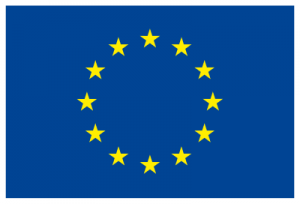Report examining strategies and approaches for deepening audience engagement with digitally mediated cultural heritage, by means of case studies, interviews, and a survey of the literature and Galleries, Libraries, Archives and Museums (GLAM) institutional documentation.
Read More →
This project has received funding from the European Union’s Seventh Framework Programme for research, technological development and demonstration under grant agreement n° 612789.
Cultural institutions
D8.5 Cultural Heritage in a Changing World
Report describing the methodology statement of the development of the book entitled Cultural Heritage in a Changing World. The central purpose of this collection of essays is to make a creative addition to the debates surrounding the cultural heritage domain.
Read More →European Policy Brief. The Cultural Heritage Institution: Transformation and Change in a Digital Age
This policy brief is concerned with CH institutions in a time of dynamic cultural, social and technological change. Specifically, it considers the multi-faceted impact of DT and the recalibration of the relationship between institutional CH practices and the individual. It advocates that innovation through research and new technologies are essential for bringing the CH of Europe closer to people, the importance of the CH sector to European growth and the recognition of DT as a driver of change in the CH institution.
Read More →RICHES Think Paper 06. Museum education with digital technologies: participation and lifelong learning
Education and learning have been a high priority task for museums. Whether informal and unintentional or structured in educational programmes for different kinds of audiences, museum learning focuses on the learner. Rather than knowledge transmission, it builds upon knowledge construction and an active engagement in personal, social and physical contexts. More than knowledge acquisition, learning in museums is engaging and gives a sense of wellbeing.
Read More →RICHES Think Paper 04. Digital Technologies: Re-thinking Turkish Libraries in an Information Society
Digital technology (DT) has had an enormous impact on Turkish society and culture and has introduced many changes in cultural heritage (CH) institutions such as libraries in Turkey. Traditionally used for borrowing books, doing homework or spending free time within a specific restricted timeframe, the introduction of DT has allowed for an expanded service for users with no restrictions of time and place or socio-economic background. For example, the important and extensive history and CH of Anatolia has been digitised and can be accessed online by anyone, at any time and in any place.
Read More →D4.2 Good practices and methods for co-creation
Report presenting an overview of exemplary and inspirational co-creation cases that have been developed inside and outside of the RICHES project. Drawing upon the case studies, the deliverable suggests a number of guiding principles when preparing a co-creative project within heritage institutions.
Read More →D5.4 CH Best Practice in the Digital Economy
Report addressing one the most important issues for the future of cultural heritage: experimentation and innovation in digital technology in a time of social and technological change. The deliverable offers an insight into CH best practice in the digital economy through collaborative interdisciplinary projects that engage CH institutions with academic research institutions.
Read More →D3.1 Transformantion, change and best practice for CH processes
Report presenting the results of investigations into how digital practices are transforming the traditional cultural heritage interactions and practices. It explores the current challenges and potential opportunities for CH that lie ahead and reflects the context of change related to following fields: CH held by cultural institutions; mediated and unmediated CH; traditional hand-making skills; transformations of physical spaces, places and territories; digitization on performance-based CH.
Read More →Council conclusions on participatory governance of cultural heritage
At its meeting in Brussels on 25 November 2014, the Council of the European Union, under the leadership of the Italian Presidency, adopted Conclusions on participatory governance of cultural heritage, inviting Member States to promote a more active involvement of civil society and of the private sector in the governance of cultural heritage, at local, regional, national and European levels.
Read More →European Policy Brief. Co-creation strategies: from incidental to transformative.
Co-creation within CH institutions is not a new phenomenon, but the current practice often is project based, run only by the educational staff, met by scepsis from curators and conservators, thus leaving a lot of potential results untouched. This policy brief, based on preliminary research findings, gives a short overview of the potential benefits of co-creative methods in the CH sector, of the current practices and a number of suggestions to further stimulate co-creation in cultural heritage on a strategic level.
Read More →